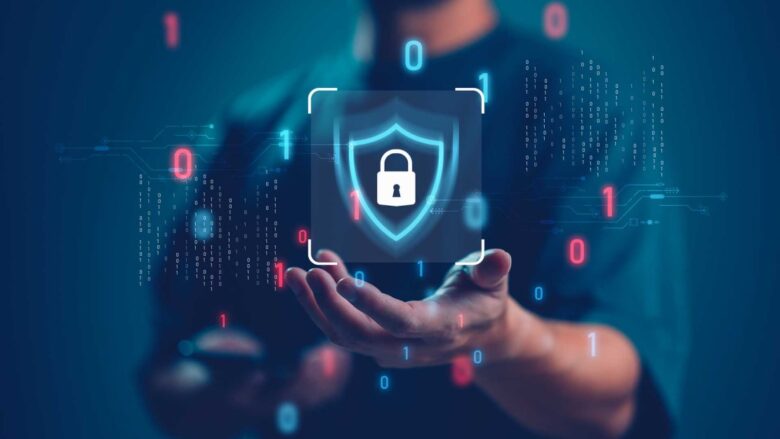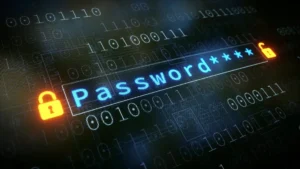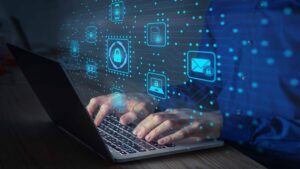Digital security is the protection of data stored, sent, and accessed online. As we become increasingly reliant on technology, protecting our personal and business data is more important than ever. Cybercriminals can exploit the digital footprints you leave behind when checking emails, shopping online, using mobile banking, or posting on social media. Digital security means preventing these risks, protecting private data, and ensuring people can use online platforms safely. If people don’t understand the basics of digital security, they can lose their privacy, money, and even their identity.
Understand Common Cyber Threats
Cyber risks are numerous, and understanding them is the first step to protecting yourself. Phishing emails are one of the most common types of attacks, where hackers pose as legitimate companies to obtain information. Malware (including viruses, spyware, and ransomware) can infect devices and steal or block data. Identity theft occurs when criminals use stolen personal information to impersonate others and commit fraud. Data breaches are another growing concern because they can expose large amounts of consumer information at once. People can protect themselves by understanding these common threats and taking steps to avoid them.
The Importance of Strong Passwords
Passwords are the most important part of online security, yet many people still use weak, easy-to-guess passwords. A good password should be long, unique, and difficult to guess. Avoid using personal information like your name, date of birth, or phone number. Instead, use a combination of uppercase and lowercase letters, numbers, and symbols. Avoid using the same password for multiple accounts, as one compromised account puts all others at risk. A password manager makes managing multiple accounts easier and ensures passwords are strong and secure.
Using Two-Factor Authentication
A password alone is no longer enough. Two-factor authentication (2FA) adds an extra layer of security by requiring a second step of verification when logging in, whether it’s an SMS code, email verification, or a fingerprint scan. This means that even if someone knows your password, they can’t access your account without the second step. Most major platforms, including email providers, social media platforms, and banking apps, now support two-factor authentication. Enabling two-factor authentication is one of the easiest and most effective ways to protect your data.
Browse Safely
How you use the internet is crucial to the security of your digital life. Only visit websites that begin with “https,” and don’t click on links or ads that look suspicious or promise fake offers. Be careful when downloading files or software, and only download them from trusted sources. Public Wi-Fi is convenient but not always safe, as hackers can potentially steal the information you send or receive. To stay safe, avoid logging in to important accounts via public Wi-Fi. Instead, use a virtual private network (VPN) to encrypt your connection. By following safe browsing rules, you can keep unwanted visitors at bay for a long time.
Securing Your Devices
Securing your computer, smartphone, and tablet is just as important as protecting your online accounts. Always keep your operating system and apps up to date. Updates often fix security vulnerabilities. Use reliable antivirus software to detect and block malware before it can do any damage. Enable firewalls and encryption tools for extra security. If you lose or steal your device, you can prevent someone from accessing it with screen locks, biometric authentication, and the ability to remotely wipe it. Protect every device as a gateway to your personal data.
Social Media and Privacy Protection
Many people use social media, but hackers also want to exploit it. If you provide too much personal information, such as your location, family, or vacation plans, you can become an effortless target. Please adjust your privacy settings to ensure that strangers cannot access all your data. Don’t accept friend requests from accounts you don’t recognize, as these could be fake accounts created to gather information. Be careful when clicking on or communicating with a friend, even if a link or message comes from a friend. Their account could be hacked. Connecting with others is the whole point of social media, but safety should always come first.
Secure your Financial Information
Digital banking and online shopping make everything easier but also carry greater risks. Always ensure you’re on a secure website when entering payment information. Don’t save your credit card information on websites unless absolutely necessary. Furthermore, regularly check your bank statements for purchases you haven’t made. Use a secure payment system and enable transaction notifications to stay informed of unusual activity. Always download your mobile banking app from an official app store and keep it up to date. Exercise extreme caution when processing your financial information online, as it is valuable.
Conclusion
With more of our daily lives taking place online, digital security has become an essential part of modern life. To protect your personal information, you must be aware of this, develop good habits, and use tools like strong passwords, two-factor authentication, antivirus software, and safe browsing. Everything you do strengthens your defenses against potential threats and ensures that your private information remains safe. Digital security isn’t just for techies; it applies to everyone who uses the internet. By taking responsibility and integrating security into your daily life, you can enjoy the digital world with peace of mind.
FAQs
1. Why is it important to protect your digital data?
It’s crucial because it prevents hackers from stealing or misusing your personal, financial, and work-related information.
2. What’s the best way to protect my data online?
Using strong passwords and two-factor authentication is one of the easiest and most effective ways to secure your accounts.
3. Is it safe to use Wi-Fi in public places?
Public Wi-Fi is generally not secure, but with a VPN, you can protect your data when you need to connect to Wi-Fi.
4. How often should I back up my files?
It’s recommended to back up your data at least once a week so you don’t lose any data even if your security measures fail.
5. Could you please clarify if antivirus software effectively delivers on its promises?
Yes, antivirus software is an important part of digital security because it can help detect, block, and remove malicious apps.




